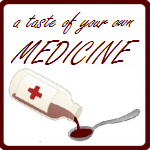 If you have the chance to work with veterans during your medical school career, take it. I had the unique opportunity of working with veterans during my psychiatry rotation where I was confronted with the reality of post-traumatic stress disorder, or PTSD. I saw the effects of PTSD on veterans who served in past or current wars. It didn’t matter whether they served in Korea, Vietnam, Afghanistan or Iraq — they were all haunted by their military past. Some had PTSD for only a couple of months; others have been suffering for decades.
If you have the chance to work with veterans during your medical school career, take it. I had the unique opportunity of working with veterans during my psychiatry rotation where I was confronted with the reality of post-traumatic stress disorder, or PTSD. I saw the effects of PTSD on veterans who served in past or current wars. It didn’t matter whether they served in Korea, Vietnam, Afghanistan or Iraq — they were all haunted by their military past. Some had PTSD for only a couple of months; others have been suffering for decades.
Per the Diagnostic and Statistical Manual of Mental Disorders (DSM-IV-TR) published by the American Psychiatric Association, PTSD is defined as a person witnessing or experiencing a life-threatening event, such as war, rape or a natural disaster. The traumatic event is persistently re-experienced through thoughts, nightmares and flashbacks. The person avoids stimuli that are associated with the trauma. For instance, they have a numbing response and try to avoid thoughts, conversations or places that remind them of the event. They exhibit increased arousal as manifested by difficulty sleeping, angry outbursts, difficulty concentrating, hypervigilance and an exaggerated startle response. These symptoms last for more than a month and cause impairment in work, relationships or daily functioning.
Listening to the patients gave me greater insight about their mental illness. One patient couldn’t watch football anymore because it was a painful reminder of the violence of war. Another patient was so paranoid of Middle Easterners that he beat them up because they looked similar to the enemies that he encountered while in Afghanistan. A patient in his 50’s couldn’t wear his continuous positive airway pressure (CPAP) at night because it felt like a man was coming from behind and putting a hand over his mouth to suffocate him. A different patient gets worried whenever he’s standing in line at the supermarket because he thinks the people behind him are waiting to pounce on him. One time, he became so anxious that he had to climb over the cash register to escape the supermarket. He no longer shops at supermarkets anymore.
A patient in his early 20’s had severe survivor guilt after his battalion lost 25 men, all of whom he had befriended during boot camp. He missed his fellow battalion members, who he called his “brothers.” He became depressed but didn’t want to burden his wife or family with his feelings. He unsuccessfully attempted suicide by hanging himself from a noose he made out of rope.
It was heartbreaking to hear veterans’ painful memories and how their everyday life is affected. Medications, such as SSRI’s, will be necessary for some. Others will benefit from cognitive behavioral therapy. All should attempt individual or group therapy.
My time with the veterans taught me to be more open-minded and aware of others’ experiences. Even though I have not seen the horrors of war, I can at least listen and offer support and resources to those who have.
PTSD is a serious mental illness and the medical community must be prepared to address it. Furthermore, the medical community must work closely with service men and women before combat to prevent the occurrence or severity of PTSD.
